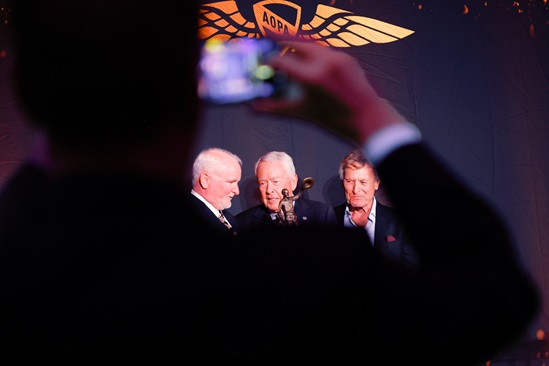AOPA Air Guard: Test your knowledge
In 1940, American entry into World War II was looming. Anticipating the need for qualified pilots to help in service of national defense, AOPA announced the formation of the AOPA Air Guard, a program designed to introduce civilian pilots to military rules and procedures and to provide a manpower base from which the air forces could draw additional pilots. Air Guard applicants were tested on their knowledge of military customs and discipline, Army administration, first aid, engines, navigation, and more. Some 5,000 pilots participated in the Air Guard. Here’s a sampling of the application questions. How would you fare? (Answers below.)
1. True or false? You are permitted to fly within 100 feet of the water provided it is open water and no ships are within one-half mile.
3. Does the Army supply food, clothing, shelter, and entertainment for the enlisted men?
4. True or false? Any person subject to military law who behaves himself with disrespect toward his superior officer is punishable under the Articles of War.
5. True or false? Before making a parachute jump from a plane, it is advisable to have the plane diving at a relatively high speed so that the wind force will open the parachute completely and properly.
6. True or false? In the “V” type and “in-line” type engines, the valves are conventionally operated by a cam shaft having a number of cams properly spaced along its length, but in the “radial” type engine, all intake valves are operated by one large cam and the exhaust valves are operated by another.
7. True or false? The main function of piston rings in an airplane is to seal the pistons so that there is no seepage of oil by them from the wet sump during inverted flight, as such seepage would result in the formation of carbon on the cylinder head.
8. When soldiers are in a temporary camp where no permanent toilet facilities are available, is it customary to have a latrine dug which is to be used by all, rather than have each man take care of his own situation according to carefully prepared regulations?
9. If you are in the Regular Army, is a superior officer in the National Guard entitled to a salute from you?
10. Is it correct that AWOL is simply slang used by civilians to mean that a man is away from his job without permission, and not an official Army abbreviation meaning the same thing?
1. False 2. True 3. Yes 4. True. 5. False 6. True 7. False 8. Yes 9. Yes 10. No



